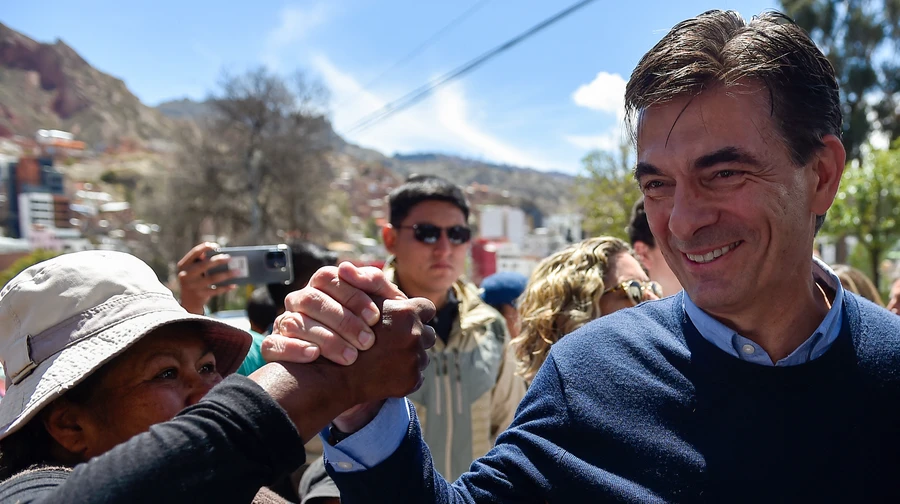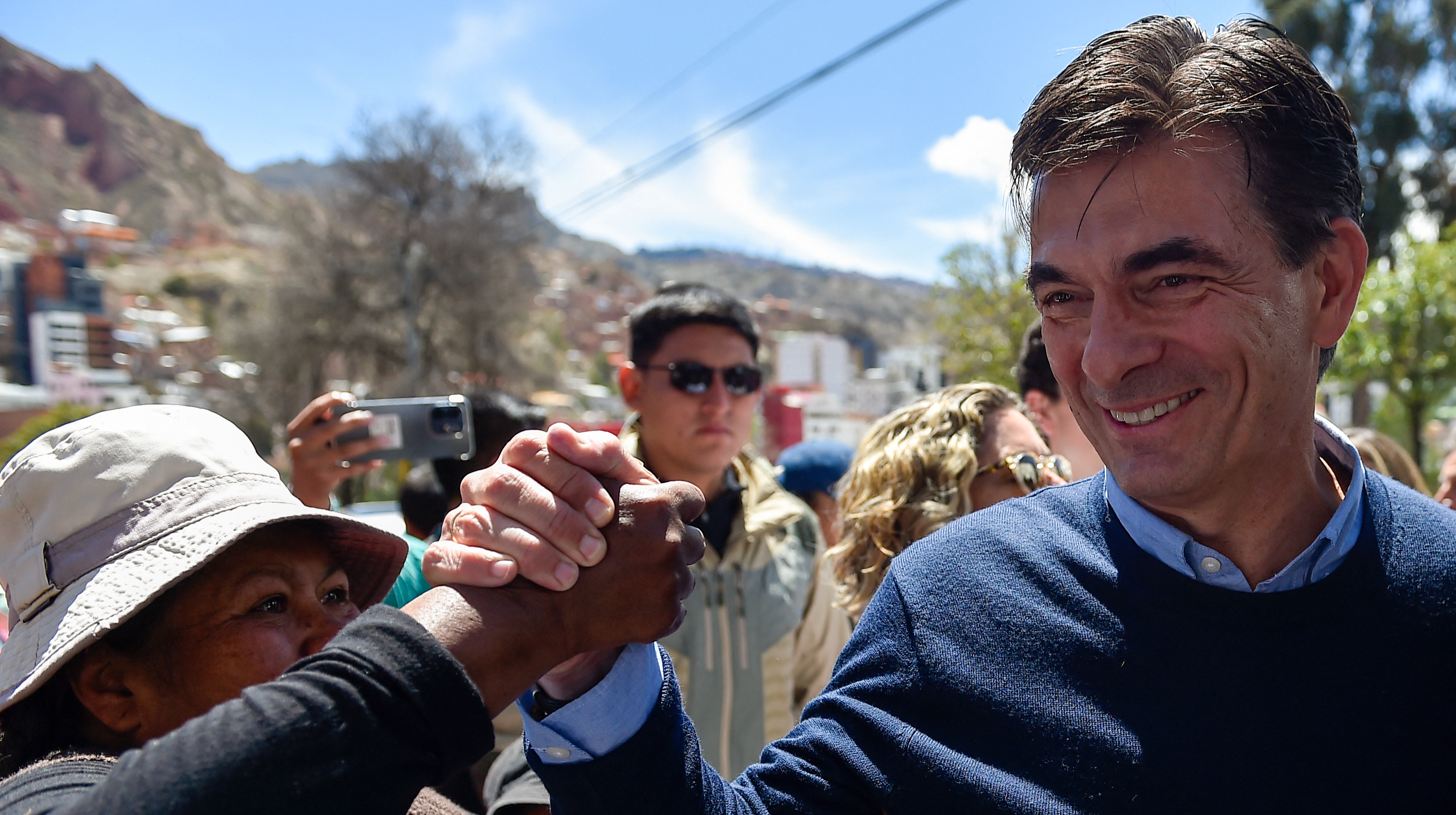“ Centrist Rodrigo Paz has won the second round of Bolivia’s presidential election, ending nearly 20 years of leftist rule amid the country’s worst economic crisis in a generation. Source: Reuters Details: According to the results of the vote count, Senator Rodrigo Paz of the Christian Democratic Party won 54.5% of the vote, while his opponent Jorge Quiroga got 45.5%. The new president will take office on November 8, but his party does not have a majority in the legislature, which will force him to seek political allies. “We must open Bolivia to the world,” Paz said in his victory speech in La Paz after Quiroga conceded defeat. The 58-year-old senator’s victory marks a historic breakthrough for the South American country, which has been ruled almost continuously since 2006 by the Movement for Socialism (MAS), founded by former president Evo Morales. MAS’s popularity has plummeted amid a deepening economic crisis, forcing voters to look for alternatives. The volatile economy dominated the election campaign. A sharp drop in natural gas exports, inflation reaching a 40-year high and acute fuel shortages have become key concerns for citizens. Pasa’s moderate platform, which promises to preserve social programs while promoting private sector development, resonated with disillusioned MAS voters who were put off by Quiroga’s calls for austerity. Paz promised to “build an economy for the people” in which “the state will no longer be the central axis.” Both candidates have promised to strengthen relations with Washington, which have remained strained during decades of anti-American MAS policy. US Secretary of State Marco Rubio called these elections “an opportunity for transformation.” Paz has already unveiled plans for a $1.5 billion economic cooperation agreement with the United States to secure fuel supplies. The new administration will face immediate challenges. Paz said that he is already working on agreements with suppliers to defer payments to ensure deliveries of diesel and gasoline after taking office. It also intends to phase out universal fuel subsidies, replacing them with targeted support for vulnerable groups. “The market should adjust prices, but the state will help those who really need it,” he said. The Central Obrera Boliviana union has already warned that it will oppose any move that would jeopardize the social achievements of the MAS era. Interestingly, Paz’s campaign was greatly boosted by his vice-presidential candidate, Edman Lara, a former police officer who became a TikTok star thanks to a viral video exposing corruption. His populist appeal helped Paz attract the votes of the youth and the working class. However, not all voters believe in the changes.”, — write: www.pravda.com.ua
 Rodrigo Paz. Photo: Getty Images
Rodrigo Paz. Photo: Getty Images Source: Reuters
Details: According to the results of the vote counting, the senator from the Christian Democratic Party, Rodrigo Paz, won 54.5% of the votes, while his opponent, Jorge Quiroga, received 45.5%. The new president will take office on November 8, but his party does not have a majority in the legislature, which will force him to seek political allies.
Advertising:
“We must open Bolivia to the world,” Paz said in his victory speech in La Paz after Quiroga conceded defeat.
The 58-year-old senator’s victory marks a historic breakthrough for the South American country, which has been ruled almost continuously since 2006 by the Movement for Socialism (MAS), founded by former president Evo Morales.
MAS’s popularity has plummeted amid a deepening economic crisis, forcing voters to look for alternatives.
The volatile economy dominated the election campaign. A sharp drop in natural gas exports, inflation reaching a 40-year high and acute fuel shortages have become key concerns for citizens.
Pasa’s moderate platform, which promises to preserve social programs while promoting private sector development, resonated with disillusioned MAS voters who were put off by Quiroga’s calls for austerity. Paz promised to “build an economy for the people” in which “the state will no longer be the central axis.”
Both candidates have promised to strengthen relations with Washington, which have remained strained during decades of anti-American MAS policy. US Secretary of State Marco Rubio called these elections “an opportunity for transformation.” Paz has already unveiled plans for a $1.5 billion economic cooperation agreement with the United States to secure fuel supplies.
The new administration will face immediate challenges. Paz said that he is already working on agreements with suppliers to defer payments to ensure deliveries of diesel and gasoline after taking office. It also intends to phase out universal fuel subsidies, replacing them with targeted support for vulnerable groups.
“The market should adjust prices, but the state will help those who really need it,” he said.
The Central Obrera Boliviana union has already warned that it will oppose any move that would jeopardize the social achievements of the MAS era.
Interestingly, Paz’s campaign was greatly boosted by his vice-presidential candidate, Edman Lara, a former police officer who became a TikTok star thanks to a viral video exposing corruption. His populist appeal helped Paz attract the votes of the youth and the working class. However, not all voters believe in the changes.
